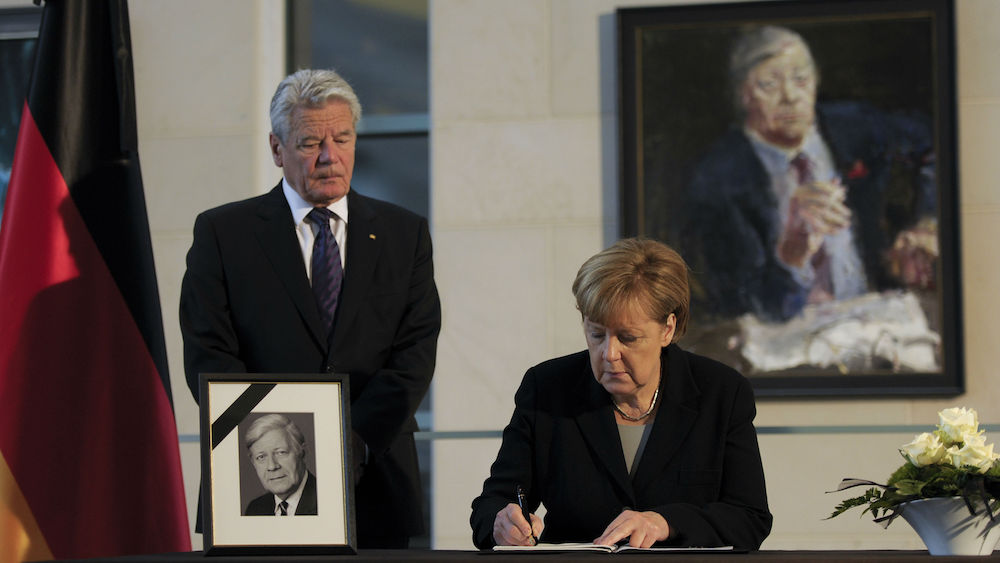Nearly 30 years after German reunification, East Germans remain dramatically under-represented among the country’s elites. As a result, many feel estranged from the democratic institutions, giving the far-right Alternative für Deutschland a huge boost in the East.
Late on September 24, when nearly all the votes in the federal election had been counted, Germany’s far-right populists celebrated an astonishing success. Not only were they going to have the third largest group in the new Bundestag – in Saxony, the Alternative für Deutschland (AfD) received a staggering 27 percent of the vote, making it the strongest political force in this East German state.
During the campaign, the AfD played very skillfully on fears of immigration and the spread of Islamic fundamentalism that run particularly strongly in eastern Germany. But it also tapped a huge reservoir of resentment against the country’s political elites, vilifying them as “cartel parties” and “pseudo elites.”
As a result, the AfD’s share of the vote was twice as high in eastern Germany – with an average of 21.5 percent – compared to the old West German states. “We are going to kick the old parties in the butt,” one AfD supporter crowed on television during the election night.
There is a reason the anti-establishment message plays so well in the former German Democratic Republic: East Germans simply aren’t part of the establishment in Germany. A study published by the Deutsche Gesellschaft, a non-profit association dedicated to overcoming the gap between East and West, shows that despite 27 years of reunification and Angela Merkel in the chancellery, East Germans are still totally under-represented among German elites.
The study, “East German Elites: Dreams, Realities, and Perspectives,” makes for an astonishing read.
Here are some key figures from the study:
Top positions across Germany generally go to West Germans. While East Germans make up 17 percent of the total population, they only hold four to five percent of senior jobs in administration. Even in eastern Germany, only 13.3 percent of judges and 5.9 percent of court presidents are East Germans.
Every single one of the country’s 500 richest families is from West Germany. The 30 biggest publicly traded companies are managed by a total of 190 board members, and all but three of them are West Germans. Even in the hundred largest East German companies (not that they are very large), two thirds of the top management jobs are held by West Germans.
And so it continues: Out of 200 generals or admirals in the German army, two are East Germans. Out of 22 university directors in East Germany, three are East Germans. East Germany has 13 regional newspapers, yet West Germans manage all but two of them.
“When I started my job in Bonn in 2000, I doubled the number of East Germans,” Thomas Krüger, a former GDR dissident and now president of the Federal Agency for Civic Education in Bonn, said in a recent newspaper interview. “Where before there had been one East German, there now were two – out of a total of 200 employees.”
“Cultural Colonialism”
Politics is where the balance works best, because elected officials need to be confirmed by their bases. Even then, 30 percent of ministerial postings in the Eastern state governments are taken up by West Germans. In contrast, in nearly three decades, only one East German has managed to serve in a West German state cabinet.
“With Angela Merkel as chancellor and former Federal President Joachim Gauck, at first glance things may look different,” Krüger said in the interview. “But across the (East German), the dominance of West Germany among the elites continues to be experienced as a cultural colonialism.”
The East German revolution of 1989, like all revolutions, consisted of replacing the elites – the people working for the communist party and state institutions, including the secret police, the Stasi. But in contrast to what happened in Eastern Europe, the old East German elite was not replaced by new local leaders, but by West Germans who brought their political system to the former GDR and occupied nearly all key positions to manage the change.
This was initially welcomed by many East Germans, who wished for better government and untarnished leaders. They did not expect the transformation of their society and economy to bring such pain in terms of jobs, security, and social structures. Soon, East Germans came to see the West Germans (“Wessis”) as brash, arrogant, and shallow; West Germans saw East Germans (“Ossis”) as self-effacing, passive, and sometimes lazy. Raj Kollmorgen, one of the authors of the study, says that to this day East Germans are stuck with an inferior image. West Germans build their careers through networks of power, recruiting people of a similar background and therefore perpetuating the discrepancy in the careers between Ossis and Wessis.
As a result, many East Germans feel alienated from the political, economic, and social institutions of unified Germany. “There is a de facto gap in the representation of East German interests, perspectives, and experiences,” said Iris Gleicke, a Social Democrat from Thuringia who serves as the federal government’s Commissioner for Eastern (German) Affairs.
Gleicke quoted a 2014 poll by sociologists from Halle that found that almost three out of four West Germans feel “politically at home” in the Federal Republic, while not even half of East Germans do. “If you leave out the East, you will to have to pay for that at some point in time,” she said.
Part of that payment is the East’s high support for the AfD, though the populist surge has other causes as well – after all, right-wing populism is also flourishing in central and eastern European countries that came out of communist rule without an imported elite.
Yet if East Germans remain left out, Germany as a whole will suffer – not only in terms of democratic representation, but also because it is depriving itself of a great pool of talent and experience.







